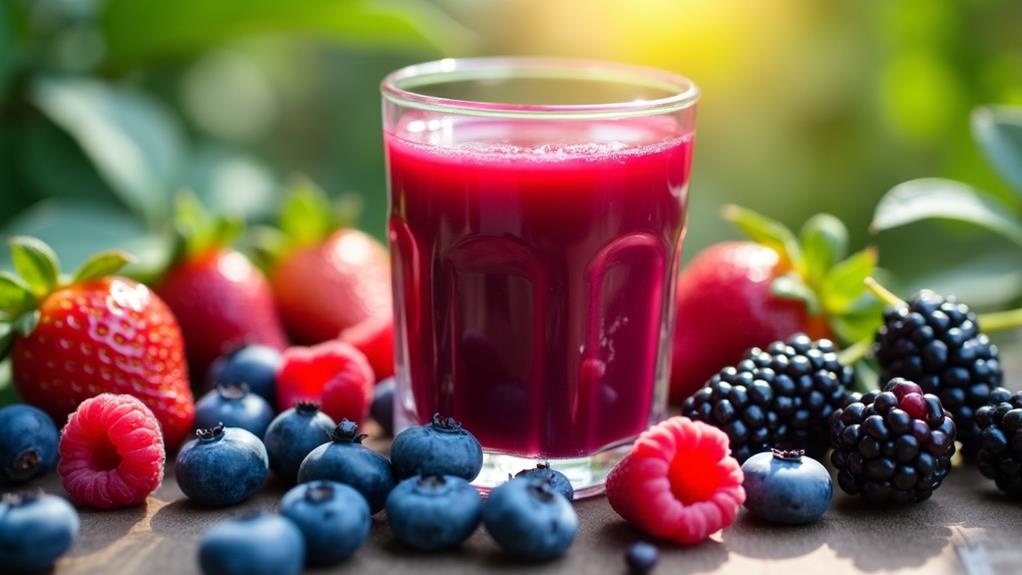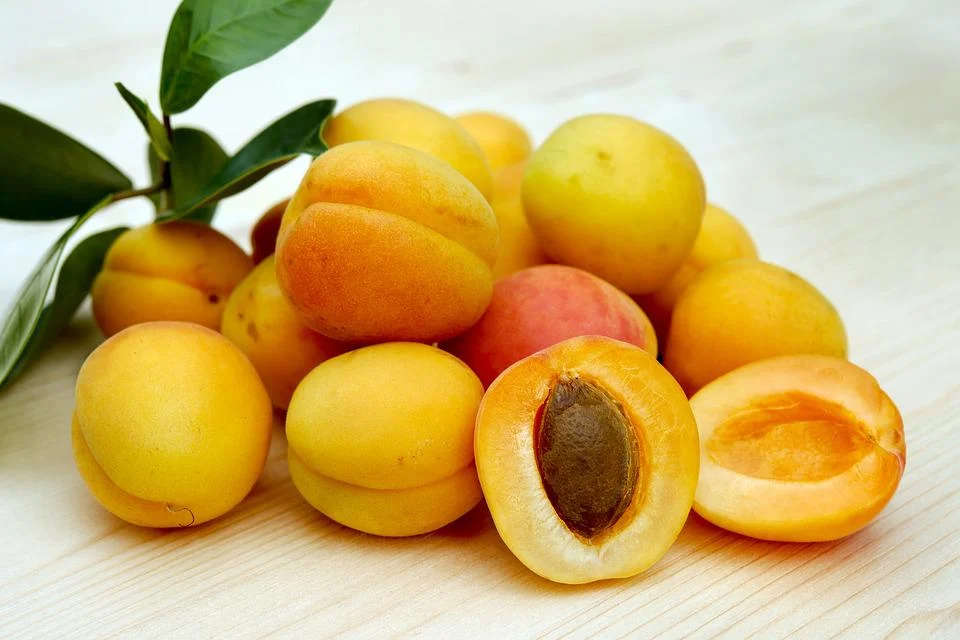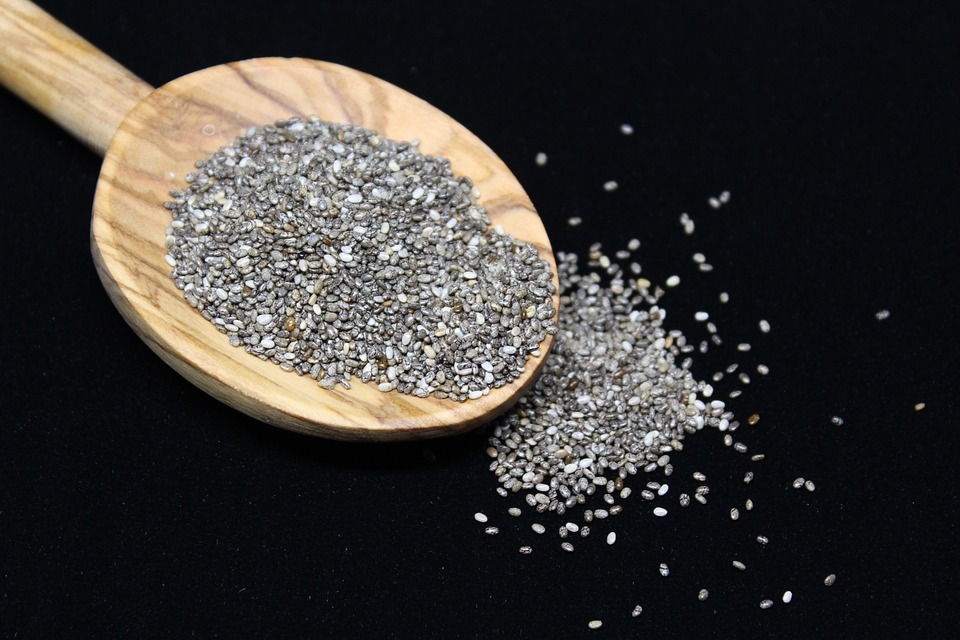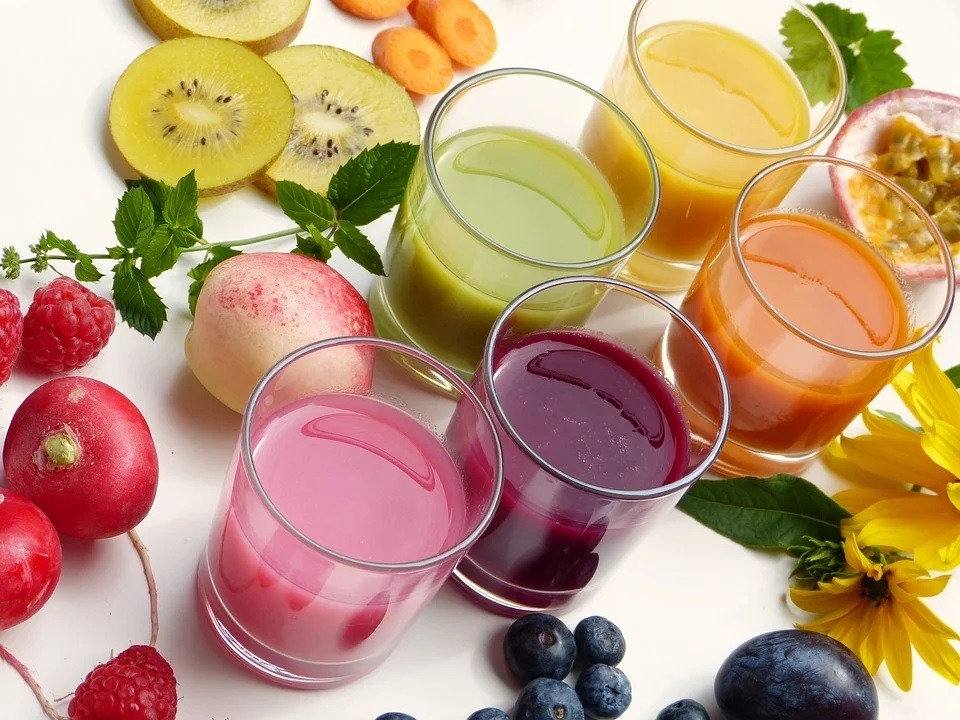Are Antioxidants Higher in Juice? Exploring the Benefits
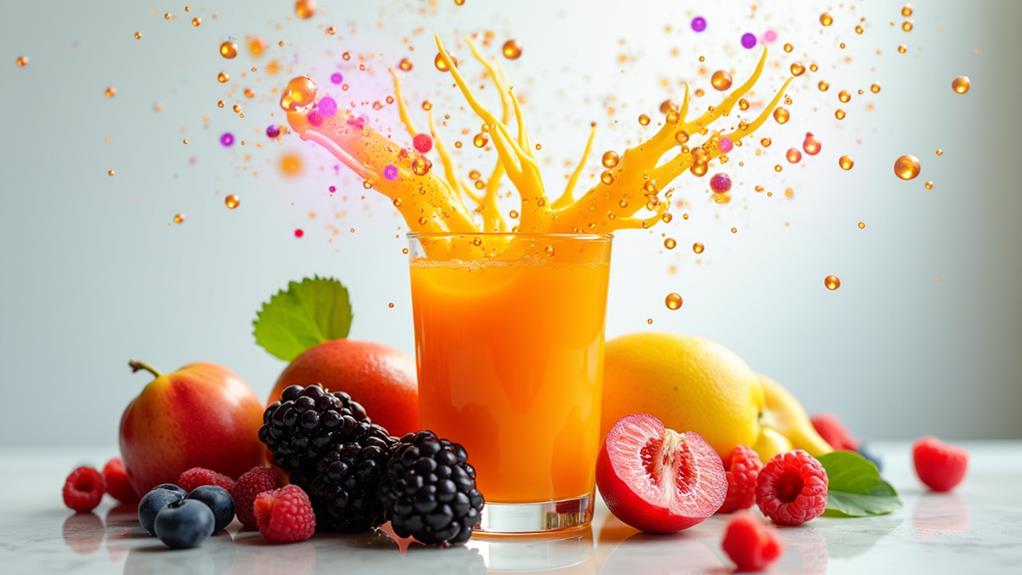
You might wonder if juicing fruits and vegetables enhances their antioxidant content. Cold-pressed juices, for instance, can have up to 50% more antioxidants compared to their centrifugal counterparts. However, these juices also remove essential fiber, crucial for regulating blood sugar and supporting digestion. So, should you prioritize juice over whole fruits, or is there a balanced approach offering the best of both worlds? Let's explore the nuances and health implications of this topic.
Understanding Antioxidants
When it comes to understanding antioxidants, it's essential to know that these compounds play a crucial role in neutralizing free radicals in your body. Free radicals are unstable molecules that can cause cellular damage, potentially leading to chronic diseases like cancer and heart disease. Antioxidants help prevent this cellular damage and promote general well-being.
Fruit juices are a convenient and tasty way to enhance your antioxidant intake. The antioxidant capacity of these juices can vary widely, depending on the fruits or vegetables used. For example, citrus juices are particularly high in vitamin C and flavonoids, both of which contribute greatly to their nutritional value and antioxidant power.
Cold-pressed juices stand out because they typically contain up to 50% more antioxidants compared to centrifugal juices. This is due to the lower oxidation levels during the extraction process, preserving more of the beneficial compounds. Advanced measurement techniques have shown that the antioxidant activity in orange juice, for instance, can be much higher than previously thought, greatly enhancing its health benefits. Understanding these factors helps you make informed choices about your diet and general health.
Juicing Vs. Whole Fruits
When comparing juicing to eating whole fruits, it's essential to consider the differences in fiber content. Juicing removes fiber, which can lead to quicker sugar absorption and higher calorie intake. While juices provide a concentrated source of vitamins and antioxidants, they lack the fiber and phytonutrients that are crucial for digestive health. In contrast, whole fruits offer essential nutrients and fiber, promoting satiety and stable blood sugar levels.
Nutritional Content Comparison
Comparing the nutritional content of juicing versus whole fruits reveals key differences that impact health. While juicing retains significant amounts of vitamins and antioxidants, especially in cold-pressed juices, the absence of fiber limits its comprehensive health benefits. Whole fruits, however, offer a balanced profile of vitamins, minerals, and dietary fiber, which are vital for overall health.
| Nutrient | Whole Fruit | Fruit Juice |
|---|---|---|
| Fiber | High | Low |
| Antioxidants | Moderate | High |
| Vitamins and Minerals | Balanced | Concentrated |
Freshly made juices can exhibit high levels of antioxidant activity and vitamins, sometimes containing up to 30% more vitamin C and 50% more antioxidants than traditionally processed juices. This concentration can enhance nutrient absorption but often comes with higher calorie and sugar content.
Whole fruits provide a combination of vitamins, minerals, and fiber, essential for regulating blood sugar and supporting digestive health. While juices offer a convenient nutrient boost, relying solely on them may not be as beneficial as including whole fruits in your diet.
Fiber and Health Impact
Understanding the health impact of fiber underscores the significant differences between whole fruits and fruit juices. Consuming whole fruits provides dietary fiber, which aids digestion, helps regulate blood sugar levels, and promotes a feeling of fullness. In contrast, fruit juices typically lack this vital component. For instance, a medium apple offers about 4 grams of fiber, while an 8-ounce glass of apple juice contains virtually none, leading to quicker absorption of sugars.
This rapid sugar absorption can cause spikes in blood sugar levels, unlike the slow release experienced with whole fruits due to their fiber content. Moreover, whole fruits contribute to lower total calorie intake since they contain fewer concentrated sugars and possess more satiating properties.
Key points to consider:
- Whole fruits aid digestion and help regulate blood sugar levels.
- Juices lack fiber, leading to quicker sugar absorption and potential blood sugar spikes.
- Whole fruits promote fullness, aiding in calorie management.
- Higher consumption of whole fruits is linked to lower risks of chronic diseases.
Incorporating whole fruits into your diet increases fiber intake and enhances overall health, potentially reducing the risk of chronic diseases while still providing antioxidant benefits.
Types of Juicing Methods
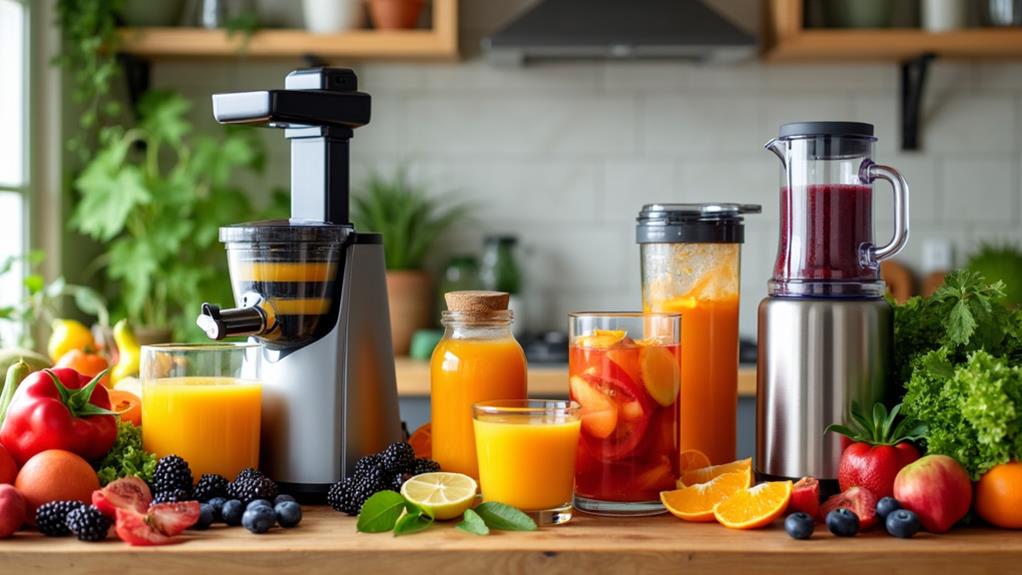
When choosing a juicing method, it's important to consider the benefits of cold-pressed juices, which retain more nutrients and antioxidants due to lower oxidation levels. In contrast, centrifugal juicing, while faster and more affordable, can result in nutrient loss and a shorter shelf life due to the heat produced during extraction. Research consistently shows that cold-pressed juices provide superior health benefits, making them a popular choice despite their higher cost.
Cold-Pressed Juice Benefits
Explore the advantages of cold-pressed juices, which offer a fresh and vibrant array of benefits. Cold-pressed juices are distinguished by their exceptional retention of vitamin C and antioxidant levels. Due to the lower heat and reduced oxidation during the extraction process, these juices typically maintain up to 30% more vitamin C and feature antioxidants that are 50% higher compared to centrifugal juices. This results in a potent dose of health benefits in every sip.
Opting for cold-pressed juices means choosing a method that preserves enzymes and phytonutrients, ensuring the nutrients from fruits and vegetables remain intact. This preservation not only enhances the juice's nutritional profile but also extends its shelf life by minimizing oxidation.
Key benefits of cold-pressed juices include:
- Higher nutrient retention: Up to 30% more vitamin C and 50% higher antioxidants.
- Preserved enzymes: Beneficial enzymes remain intact, enhancing health benefits.
- Longer shelf life: Reduced exposure to air limits nutrient degradation.
- Premium quality: Perceived as healthier and more nutritious by consumers.
As the demand for organic and natural products grows, cold-pressed juices are gaining popularity for their superior quality and nutritional benefits.
Centrifugal Juicing Drawbacks
While cold-pressed juices are known for their health benefits, it's important to consider the drawbacks of centrifugal juicing methods. Centrifugal juicing involves high-speed spinning, which generates heat and leads to nutrient loss, especially in heat-sensitive vitamins like vitamin C. This process, coupled with rapid oxidation, results in a shorter shelf life for the juice and increased nutrient degradation due to air exposure.
Research indicates that centrifugal juices may contain up to 30% less vitamin C and 50% fewer antioxidants compared to cold-pressed juices because of the high-speed extraction method. This substantial nutrient loss can affect the health benefits you expect from your juice. Although centrifugal juicing can quickly produce a higher yield of juice, it often sacrifices nutrient quality.
Additionally, centrifugal juices tend to have higher sugar content and lower fiber levels. Excessive consumption of these juices can contribute to unhealthy dietary patterns. When considering your health goals, it's crucial to weigh the pros and cons of centrifugal juicing, as the reduced antioxidants and overall nutrient loss might not provide the optimal benefits you're seeking.
Nutritional Differences
Understanding the nutritional differences between various types of juice can help you make more informed health choices. The method of extraction significantly impacts their nutritional value. For instance, cold-pressed juices can contain up to 30% more vitamin C and 50% higher antioxidant levels compared to centrifugal juices, greatly enhancing their nutritional profile.
Fresh juices generally offer a higher concentration of antioxidants than many processed juice products, making them a more beneficial option for health-conscious consumers. Additionally, the type of fruit used in the juice affects its nutritional value. Darker fruits, such as pomegranate and blueberry, are known for their higher antioxidant content compared to lighter-colored fruits.
Key points to consider:
- Cold-pressed juices: Up to 30% higher vitamin C levels and 50% more antioxidants.
- Juice concentrates: Retain some vitamins and antioxidants like anthocyanins but may lose some minerals.
- Fresh juices: Generally contain higher antioxidant levels than processed options.
- Type of fruit: Darker fruits provide higher antioxidant content.
Health Implications
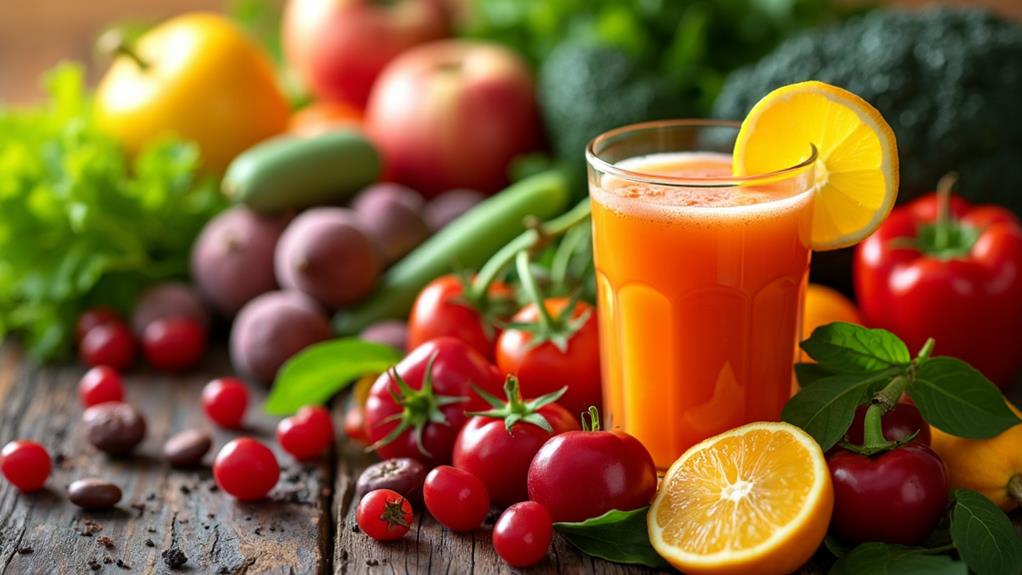
Incorporating antioxidant-rich fruit and vegetable juices into your diet can significantly enhance your well-being. Cold-pressed varieties, in particular, are packed with vital nutrients such as vitamin C and flavonoids, which help manage oxidative stress linked to chronic health conditions.
Regular consumption of these juices offers numerous health benefits. For example, pomegranate and cranberry juices have been shown to reduce levels of malondialdehyde (MDA), a marker of oxidative damage. Lower MDA levels indicate reduced oxidative stress, potentially lowering the risk of chronic diseases.
Additionally, citrus juices like orange juice can improve antioxidant capacity, supporting cardiovascular health by combating oxidative damage to cells. Overall, incorporating these nutrient-dense juices into your routine can enhance health and reduce the risk of conditions like diabetes and cancer.
Future Research Directions
To fully unlock the potential of antioxidant-rich juices, future research must focus on conducting large-scale, well-designed randomized controlled trials (RCTs). These studies are essential to verify the antioxidant effects of various fruit and vegetable juices on human health. By examining the molecular mechanisms related to antioxidant capacity, researchers can gain valuable insights into how different juices affect oxidative stress and contribute to chronic disease prevention.
Future research should:
- Assess the long-term impact of juice consumption on diseases associated with oxidative stress, such as diabetes and cancer.
- Compare the antioxidant capacities of cold-pressed versus centrifugal juices to determine which juicing methods offer greater health benefits.
- Evaluate the environmental effects of different juicing methods and their implications for sustainable practices.
- Investigate the specific molecular pathways through which antioxidants in juices provide their health benefits.

